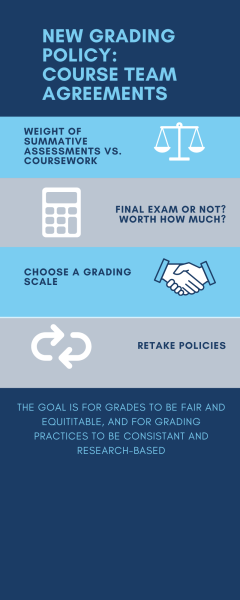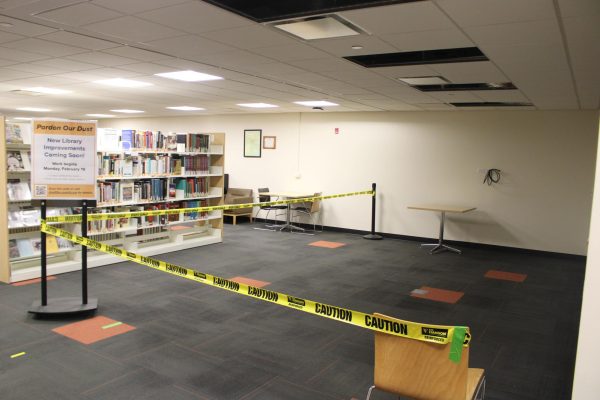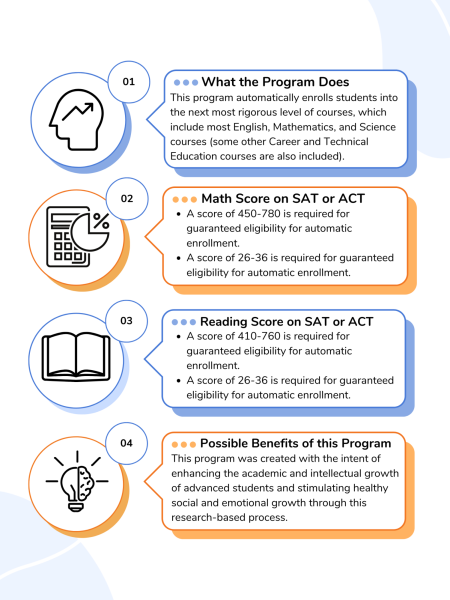New ACT changes spark questions of testing equity

In early October, the ACT announced its intent to implement significant changes to its testing: Starting in the fall of 2020, students will be allowed to retake individual sections of the ACT rather than having to redo the whole exam, and have the option of taking the test online at certain test centers.
ACT, Inc. is a nonprofit company that administers the ACT, a college preparation test taken by millions of high school students each year. These announced changes could potentially be impactful for current sophomores and juniors, a group that includes sophomore Olivia Duffy.
When asked whether she would retake individual portions of the test in the future, Duffy responded that “it would really depend on the scores I would get.” She noted that retaking individual portions of the test could matter if she chose to apply to colleges that take the ACT Superscore, which allows students to average their best individual tests scores from all of their overall tests attempts.
However, the changes will most likely have little to no effect on members of the current senior class, such as Joelle Ocheltree.
Ocheltree believes that students will have better chances of earning higher scores on the ACT due to their ability to specialize their studying for retaking individual sections of the ACT.
However, Ocheltree is glad that the changes do not apply to her since she believes these changes “will raise the overall average score [of the ACT] and make the application process more competitive.”
On the flip side of the standardized testing coin is the College Board, which administers the Advanced Placement, PSAT/NMSQT and SAT. For years, the ACT and the College Board have fought for market share within the standardized testing industry. In 2018, 2.1 million students took the SAT compared to the 1.9 million students who took the ACT, according to the U.S. News and World Report. The ACT website reports that the ACT currently costs $62.50 with writing whereas the SAT costs $60.00 with writing, as reported by the College Board. As these numbers suggest, both the ACT and SAT cost around the same price for students to take.
Ms. Amy Belstra, the counselor in the College and Career Resource Center, believes the recent changes to the ACT warrant discussions about the flaws of the more common standardized tests and the corporate greed exhibited by the companies who administer these tests.
These beliefs were reflected when Ms. Belstra claimed that the “ACT needed to do something to shake [things] up and put themselves back in that position [of superiority].” Ms. Belstra also noted that the College Board and ACT are “very much for-profit companies” despite their insistence that they are not.
Over the past few years, students have been allowed to self-report their ACT and SAT scores to colleges, a change from past practices. Ms. Belstra stated that “this has taken a large revenue stream away from both the ACT and the College Board.” Both companies would inevitably have to respond to this trend with changes of their own.
If the College Board and ACT are making decisions to benefit the financial success of their companies, are they still creating tests that reflect a student’s preparedness for college? Ms. Belstra does not believe so.
“Test prep has become a way to manipulate the outcome of the tests,” she stated.
Students from lower socioeconomic backgrounds are typically not able to access the amount of test prep that students from upper-middle class families can obtain. The ACT revealed in their 2016 report — “The Condition of College and Career Readiness” — that students whose parents had an income of over $80,000 scored more than 4 points higher on the ACT than students whose parents did not earn this sum of money. Students from lower income families typically do not have the money to pay for outside test prep sources such as tutors or online courses.
“Students from lower socioeconomic backgrounds just naturally are not going to pursue as much test prep,” said Mrs. Belstra.













